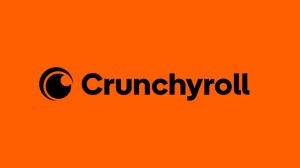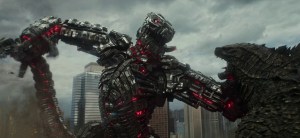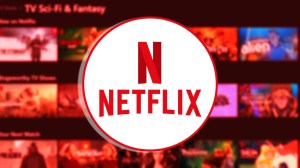
The first notable outbreak of the coronavirus in the United States occurred in Seattle, sending the city into a lockdown in the weeks leading to Emerald City Comic Con (ECCC). On March 6 the convention was postponed after many exhibitors and creators had decided not to attend and participants were issued a refund. With most states now under a stay at home order, the future of comic conventions in 2020—and all other popular gatherings—is uncertain at best.
Videos by ComicBook.com
We spoke with Mike Armstrong, VP and Event & Sales Director for ReedPOP, who oversees events like New York Comic Con and C2E2, and who was directly involved with the events surrounding Emerald City this year. He addresses what happened in Seattle, how ReedPOP plans to address conventions scheduled for later this year, and what can be done to help the comics industry in this difficult moment.
ComicBook.Com: You and your organization were on the frontlines of this crisis as it came to the United States when preparing for a convention in Seattle. Could you tell us what your experience was like responding to the initial outbreak?
Mike Armstrong: Looking back it all feels like a blur, but in the moment it was definitely a bit of a whirlwind. The situation in Seattle was moving so rapidly and we tried our best to make the best possible decisions each day based on the information that was currently in front of us. The team really pulled together at every step of the process to make sure our communications were on point and that we were doing the best that we could for all of our fans, exhibitors and partners. We really wanted to run the event because we know how important it is for all of the artists and small businesses that depend on shows like ECCC to make their living. We figured that if ECCC was postponed, it would be one of the first dominoes to fall and we held out as long as we could.
ComicBook: Emerald City was officially postponed on March 6. What was the tipping point that shifted your response?
Armstrong: The night before the postponement a few of us were talking and digesting the information that we had gotten throughout the course of the day from our partners at the Washington State Convention Center and from all of the conversations we had throughout the course of the day with fans and publishers. The situation had changed dramatically over the course of three days and with the information that was sitting in front of us at the time, we felt like it was best for all involved, including our staff, that we postpone.
ComicBook: How helpful were officials in Seattle and Washington in responding to the crisis and making your decision? Are there takeaways from your experience that you think other state and local governments should emulate going forward?
Armstrong: Visit Seattle and the Convention Center were amazing during the whole process. They were getting information from state and local officials and helping us distill it all down. When it became clear that it wasn’t going to happen in March, they moved mountains to help us find dates in August so that we didn’t need to cancel. We didn’t hear much from other officials, but understandably, they had their hands full. It turns out we made the right decision because a ban on gatherings came shortly before ECCC was due to have opened.
ComicBook: Emerald City wasn’t actually canceled, but postponed until August 21-23. How concerned are you about the possibility that it will still be unsafe to host a national convention after the summer?
Armstrong: I wouldn’t say that we are concerned, but we’re acutely aware of all of the procedures that we’re going to need to have in place before August gets here. The thing that makes this industry possible is the fact that fans want to gather. We will do everything that we can to bring them together to enjoy ECCC as safely as we possibly can.
ComicBook: New York is scheduled to be held a couple of months later in October, meaning the organization will face two big decisions about whether or not to hold events this fall. Has ReedPOP established some metrics or parameters to guide that decision making process?
Armstrong: There’s no metrics or parameters per se because every city and situation are different. The important thing is that we maintain constant communication with the buildings, our exhibitors and our fans. If we stay committed to that, I’m confident that we’ll make the best decisions we can.
ComicBook: Can you provide some examples of what data or other information is central to ReedPOP’s decisions going forward? Is there a clear line in the sand?
Armstrong: It feels like the data in our case is more subjective than objective. The only clear line in the sand is following guidance from state and local officials. If they tell us we can’t do a show, we’re not going to run a show. But, before that happens, we’re going to take all the subjective information we have at our disposal to determine whether or not we can run the show.
ComicBook: San Diego Comic-Con, one of your largest competitors, issued a statement on Twitter stating they are “hopeful” that the convention will still be held in July. Based on both your experience addressing the crisis in March and preparing for future changes in August and October, do you think that’s a realistic position?
Armstrong: We also postponed our Florida Supercon event to July 4th weekend, so I’m clearly hopeful and optimistic that we can be running shows again in July. I’ve got my fingers crossed that Supercon can run in July and our team will continue to operate as if it’s happening in July.
ComicBook: ReedPOP was one of the first comics-related businesses to be severely impacted by the crisis at the start of March. After postponing Emerald City and issuing refunds to many participants, have the relief bills passed by Congress provided much assistance in stabilizing your business?
Armstrong: Our business is stable despite the situation this year. It feels like ages ago, but we’ve run three really good shows already this year (PAX South, PAX East, C2E2) and we have a diversified business that is allowing us to actually make investments and tackle projects that have been on the side of our desks for months. We’re actually hiring, too! We’re focused on doing everything that we can to come out on the other side of this stronger than we were going into it.
We know that our situation is unique, which is why so much of our effort since we postponed ECCC has been spent trying to promote dealers and creators to help them bridge the gap between shows. We know how important they are for their livelihoods and we take their success personally.
ComicBook: ReedPOP as a convention organizer is in one of the industries most impacted by the crisis. What sorts of responses, from federal, state, or local governments, would be most helpful in sustaining your business moving forward?
Armstrong: Our business will be fine. Shows will come back. Fans need and want to gather. Creators want to promote their work. In the meantime, it’s important to think about all of the families that have been truly impacted by the situation. Seeing places like Javits Center, McCormick Place and the Miami Beach Convention Center turned into field hospitals puts things into perspective. The thing that would be most helpful is a commitment from federal and state governments to deploy the medical resources necessary to get our country well again. We also need them to bridge the gap for the hundreds of small businesses that participate in our shows so that they’re still in business by the time we get back at it.
ComicBook: You’ve been on the frontlines of the business response to this crisis and have seen how it impacts many small businesses and individuals in the comics industry. Is there any advice you’d like to share with the industry as we move forward in uncertain times?
Armstrong: Be good to each other, man. Promote each other’s work. I firmly believe that a rising tide lifts all ships and it hurts to see shows cancelling, shops closing, dealers and exhibitors going out of business. We should be rooting for everyone.
Understand that everyone is trying their best to get through this, so what’s the point of blowing up on social or carrying on with an unhealthy cynicism?
I’m lucky that we’ve got a great team and I feel like I have a personal and professional support system, but not everyone has that. A well timed email, text or phone call to an old creative partner, colleague or shop owner could go a long way.









